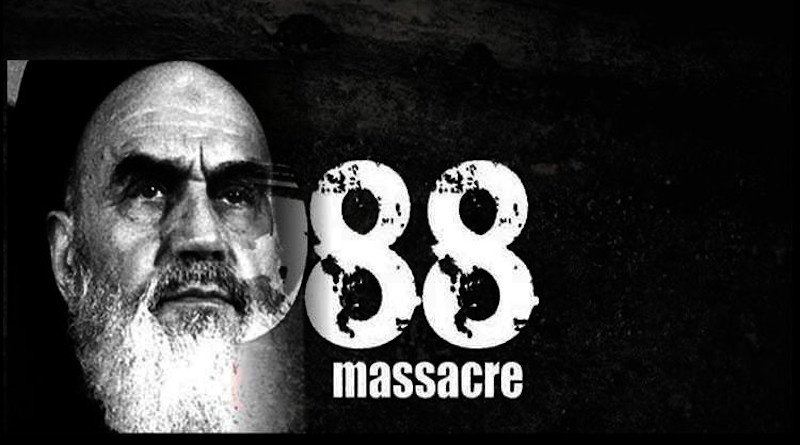Iran: Justice Movement For 1988 Massacre Marks 35th Anniversary – OpEd
By Mahin Horri
Thirty-five years ago, on December 9, 1988, the first major campaign of demanding justice for the mass killing of political prisoners the Iranian regime, reached the halls of the United Nations General Assembly.
This campaign began after the establishment of the Death Commission by Iran’s regime on July 19, 1988, which orchestrated the massacre of more than 30,000 political prisoners throughout the month of August and until mid-September 1988 in utmost secrecy. According to witnesses to the massacre, the level of secrecy was such that even prison guards and personnel were not allowed to leave the prisons until the end of the mass killings in order to prevent the news from spreading.
In these circumstances, on Friday, August 25, 1988, the Iranian Resistance warned Javier Perez de Cuellar, the Secretary-General of the United Nations, about an order in the handwriting of then-regime supreme leader Ruhollah Khomeini, pertaining to the execution of political prisoners affiliated with the People’s Mojahedin Organization of Iran (PMOI/MEK), and subsequently a widespread wave of political arrests in various cities of Iran, involving more than ten thousand individuals simultaneously with the mass executions of political prisoners whose sentences had ended. The Iranian resistance gave exact details. For example on August 14, 15, and 16, 1988, 860 bodies of executed political prisoners were transferred from Evin Prison in Tehran to Behesht-e Zahra Cemetery, and prior to that, on July 28, two hundred political prisoners who were supporters of the PMOI were massacred in the central hall of Evin Prison.
On Thursday, August 31, tens of thousands of Iranians held demonstrations in several cities across the world. Subsequently, the major campaign for justice was organized from November 29 to December 9, 1988, accompanied by a global hunger strike in 17 countries. This campaign garnered support from over 1,800 political figures and party leaders and culminated in the condemnation of the regime at the United Nations General Assembly.
This marked the fourth time and the fourth year in a row that the UN General Assembly condemned the regime’s human rights violations, once again marking the illegitimacy of the Khomeini regime and the legitimacy of the Iranian Resistance. Despite all its politicking and secret deals, the regime suffered a great political blow from the Iranian Resistance.
In the thirty-fifth year of the justice campaign, this movement took a significant step forward in seeking justice for the 1988 massacre. Conferences in London and New York with the participation of UN special rapporteurs, prominent human rights lawyers, and senior experts, highlighted the key role of the perpetrators in the mass killing of thousands of political prisoners. During these sessions on October 27 and November 1, experts emphasized the need for accountability of the masterminds and perpetrators of the 1988 massacre and rejected the culture of impunity for the criminals involved.
Professor Javaid Rehman, the UN Special Rapporteur for the Human Rights Situation in Iran, said, “The gravest tragedy which we have witnessed since the Islamic revolution – the most painful one – remains that of the enforced disappearances and the summary and arbitrary executions of thousands of individuals in 1988.”
Professor Melanie O’Brien, the president of the International Association of Scientists Against Genocide, said, “The impunity surrounding these crimes has only emboldened the perpetrators. With Ebrahim Raisi in power, it is clear that, within Iran, there will not be justice for victims, and that the violence only continues.”
It is high time for the international community to confront this grim reality and take decisive action by referring the case of the human rights catastrophe in Iran to the United Nations Security Council. This would involve bringing Khamenei, Raisi, and other perpetrators and accomplices to justice.

